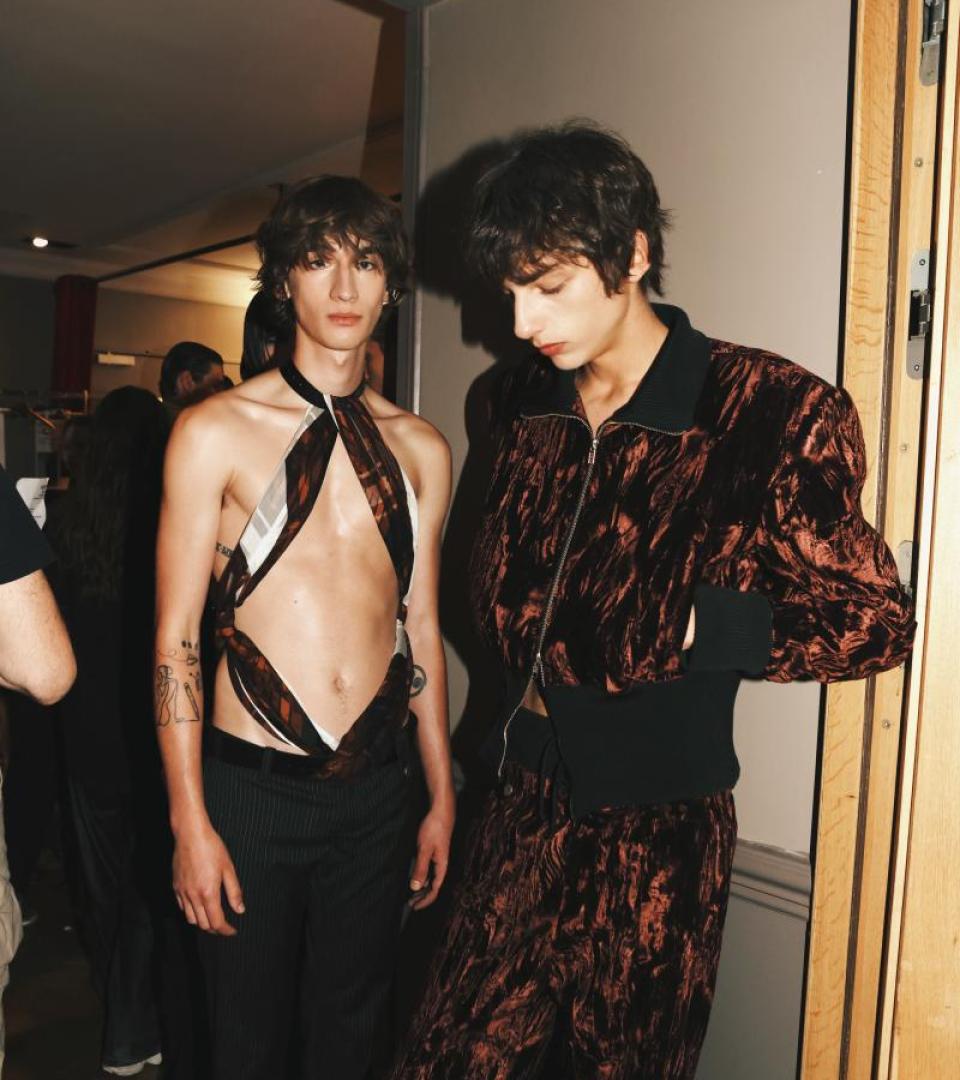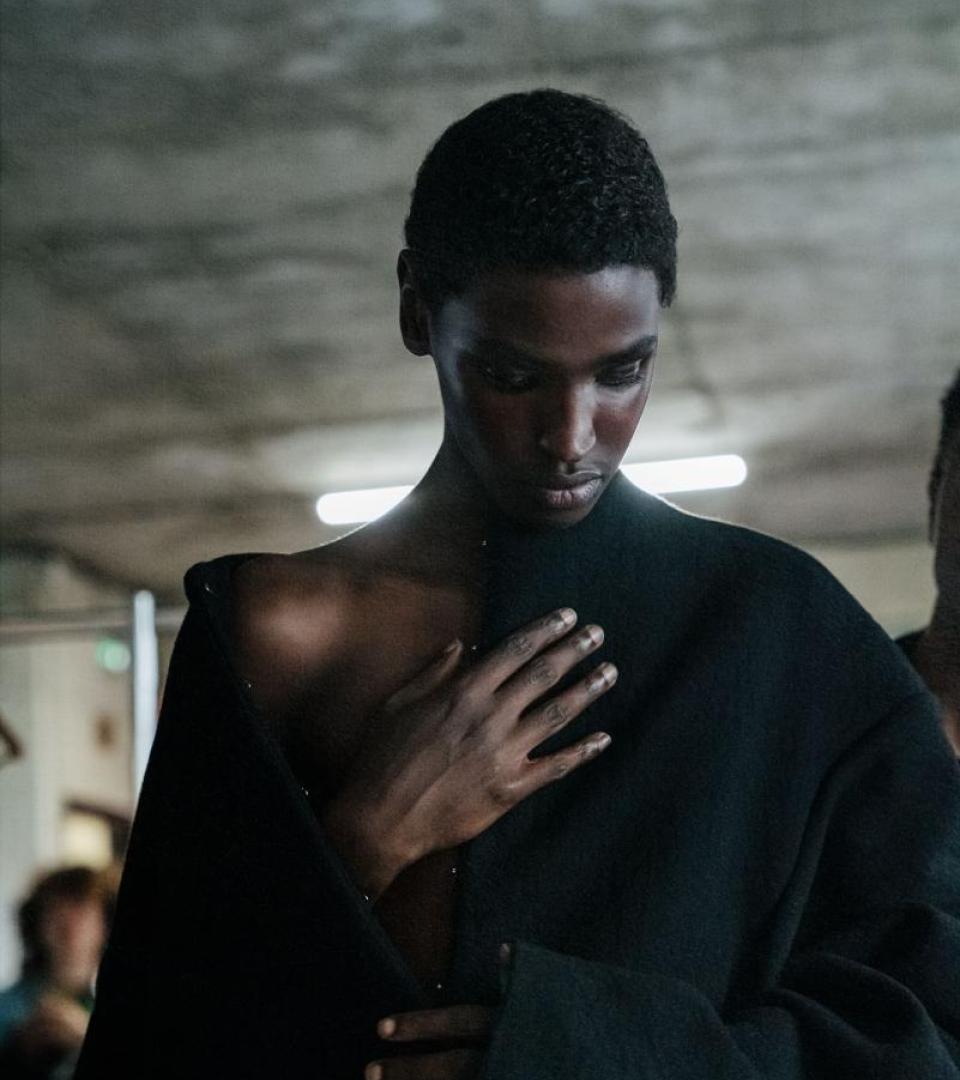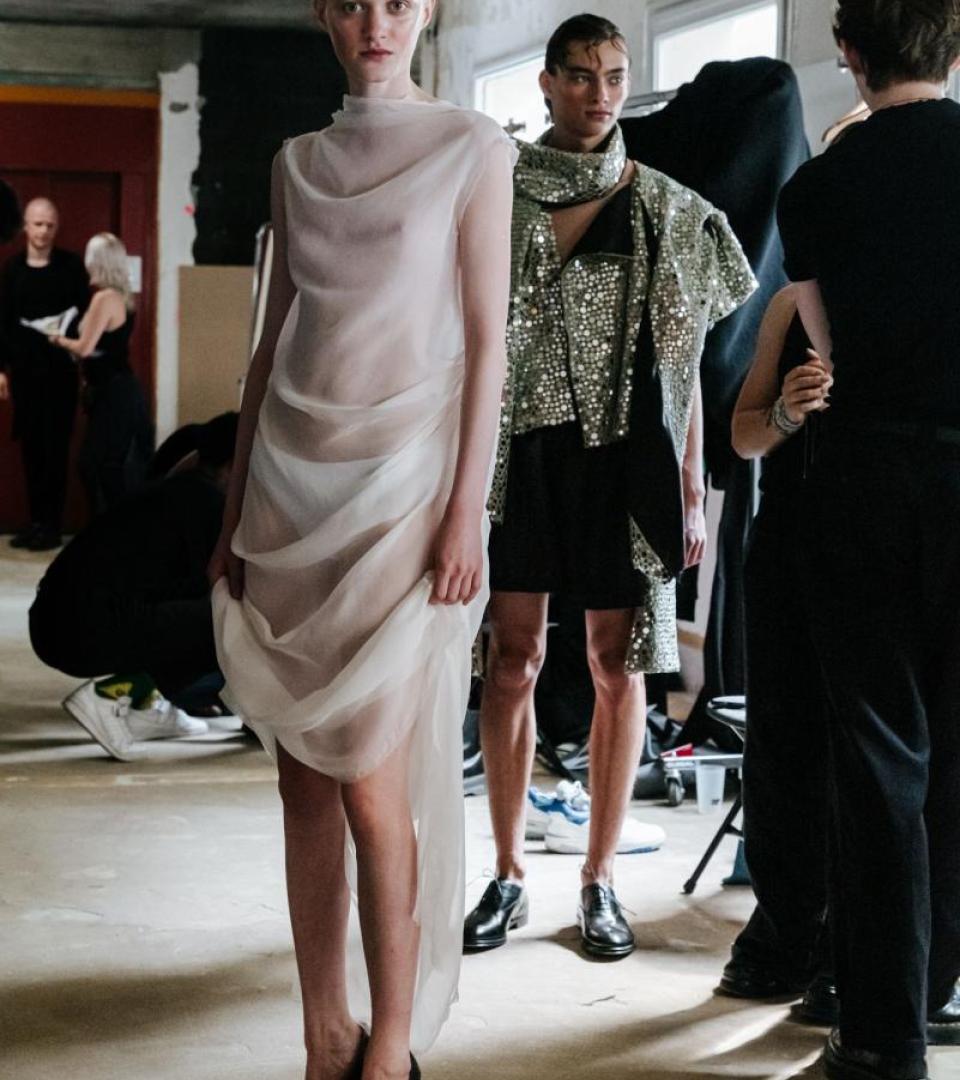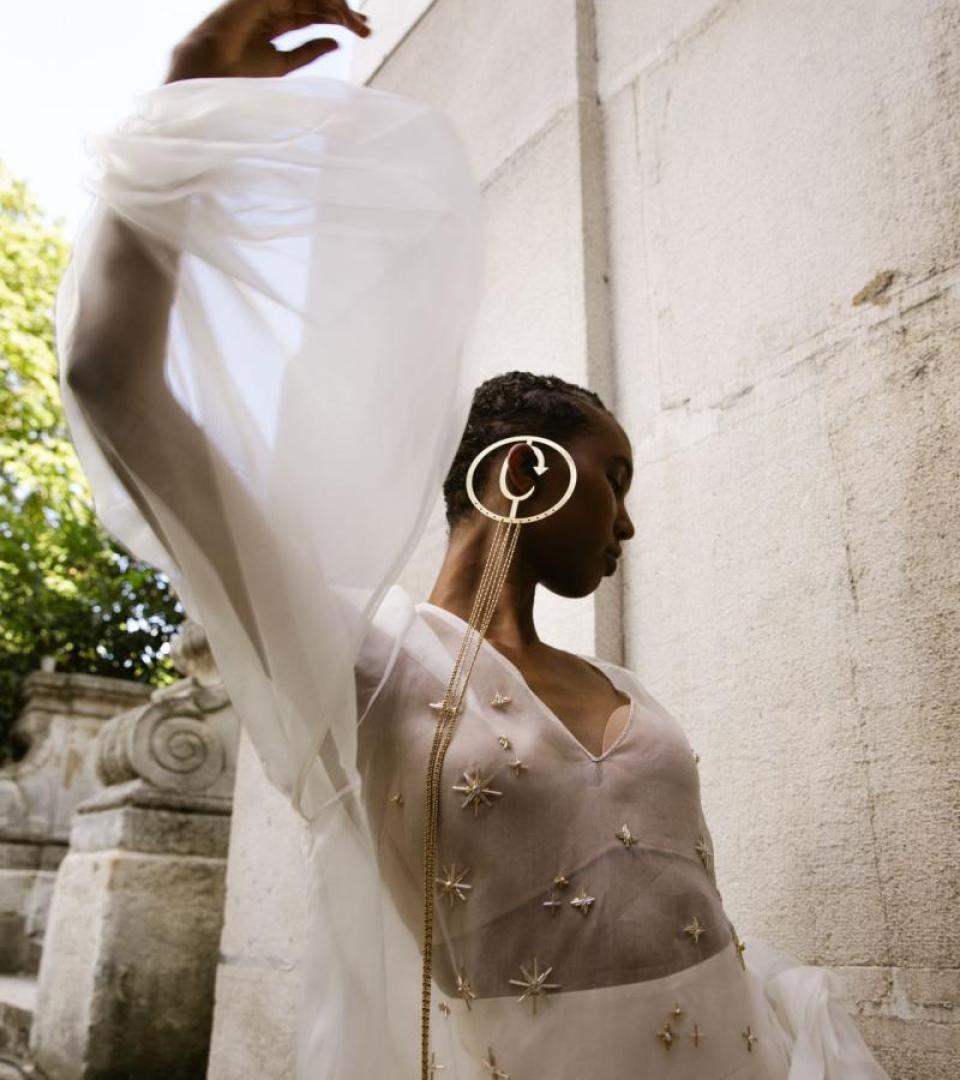Mame Kurogouchi’s Culture of Craft

This season, Mame Kurogouchi carries on an imaginary conversation with bamboo artist, Rokansai Iizuka, to illustrate how traditions and slow-pace living can become real revolutions.
What would you like us to know about this collection?
I continued a journey to delve into the history of Japanese bamboo craft typically influenced by the artist Rokansai Iizuka (1919-2004) who evolved the traditional world of bamboo craft by mixing several techniques and bringing modernity in shape. I want more people to know that we have such interesting culture around crafts, which is deeply embedded in our life and echoes the contemporary world we live in. Where there’s exceptional technique, there’s always unique spirituality — and this is what fascinates me the most.
Where are you noticing the most significant changes in fashion today?
The intersection of old ways and new ideas —and this speed has brought some maladjustments. But at the same time, we are seeing new ideas and technologies to tackle the issues. Radical climate change, for example, makes us rethink how we live – and how we choose fabrics. Our bodies are more sensitive about what touches our skin. Thanks to the interactions of technology and tradition, we have more choices of fabrics and styles to live more comfortably in this difficult time.
Evolution and improvement are related. What is one essential improvement the industry could be making?
Providing more choices, particularly on fabric. This could offer another possibility of new layering styles, which I think could be a chance for the industry to embrace new ideas.
It’s 2025, how might you have evolved?
By being at the right speed. We can only achieve rich creations with the right speed. And then taking more time to face what I have to do and make things. There is nothing that will remain for future generations that is not made with proper thought, within a proper stretch of time. Taking time and facing what’s in front of you is not a comparative argument with someone else. [It’s about] facing oneself.
Evolution is gradual; revolution is radical. Is fashion still capable of revolution?
Revolution is possible only when we can be more open and interact with other industries. There should be an exchange of sensibilities though the different industries. In this age of fragmentation, new innovations are possible when different worlds meet. How we can create a chain of “interaction” is ever more important. As a resident of a small island country, I want to believe I can be part of a small revolution. I want to believe that a chain of small revolutions will eventually create a big wave.
This interview has been lightly edited for clarity.
Photo credit: Yuichiro Noda



